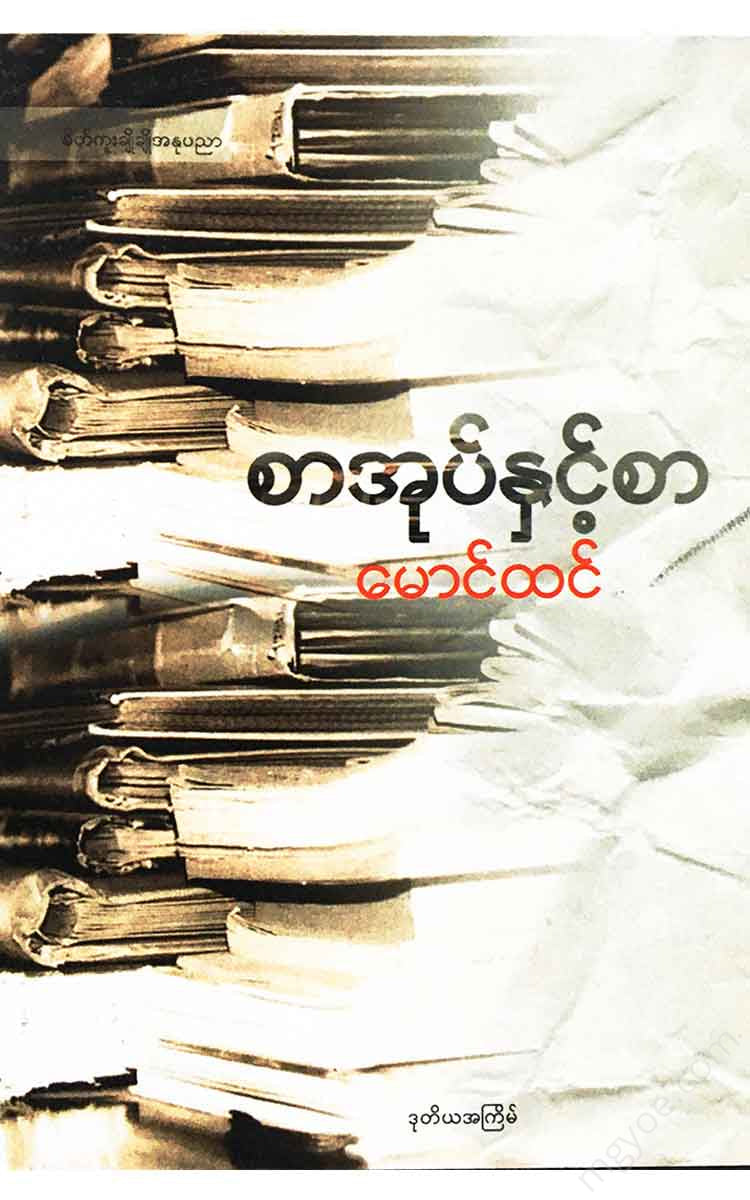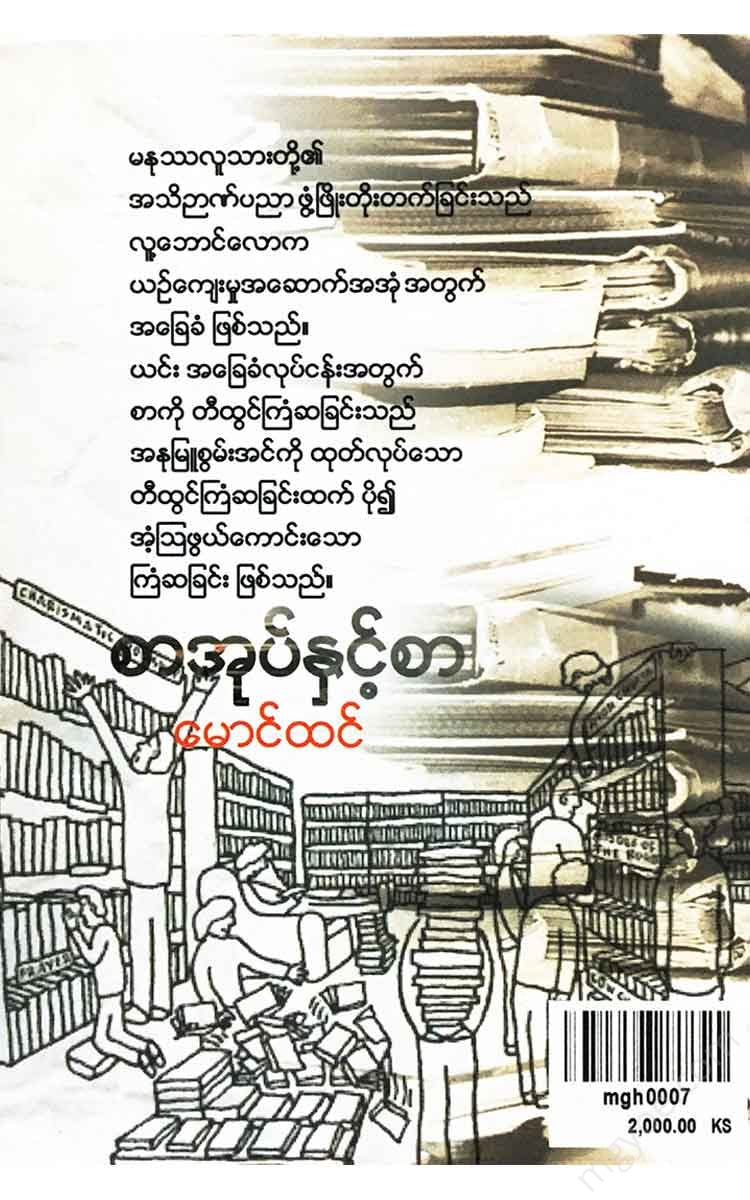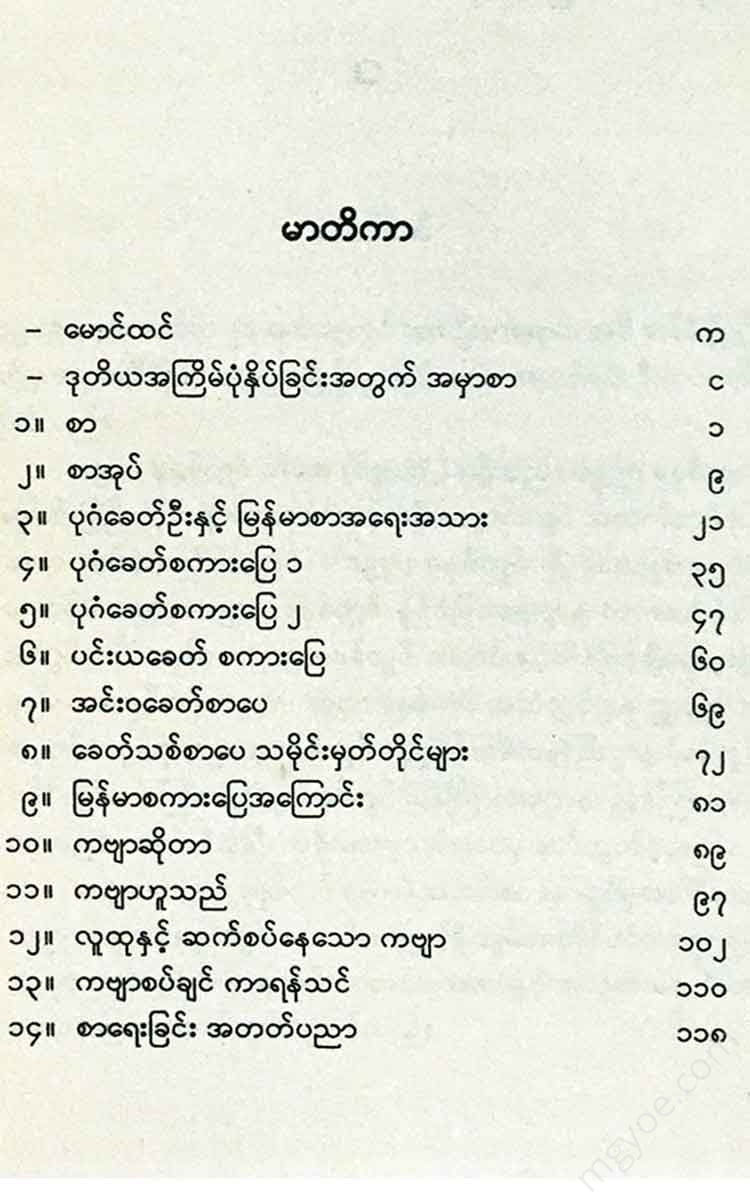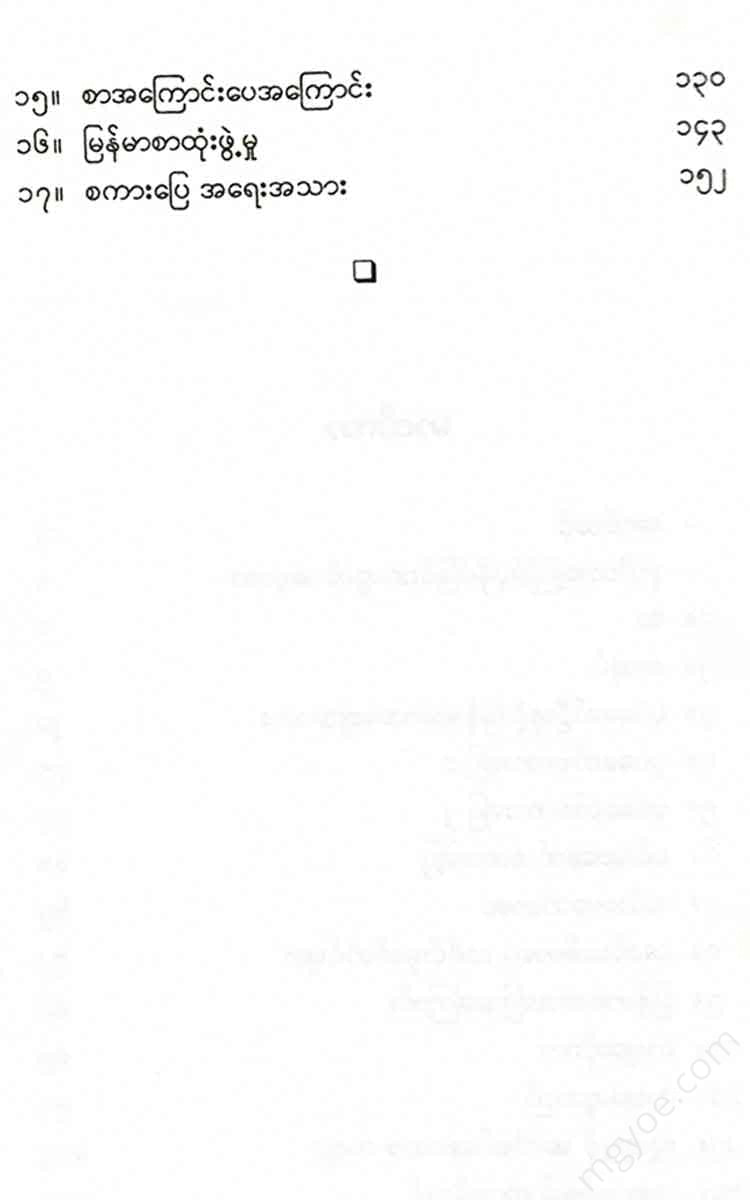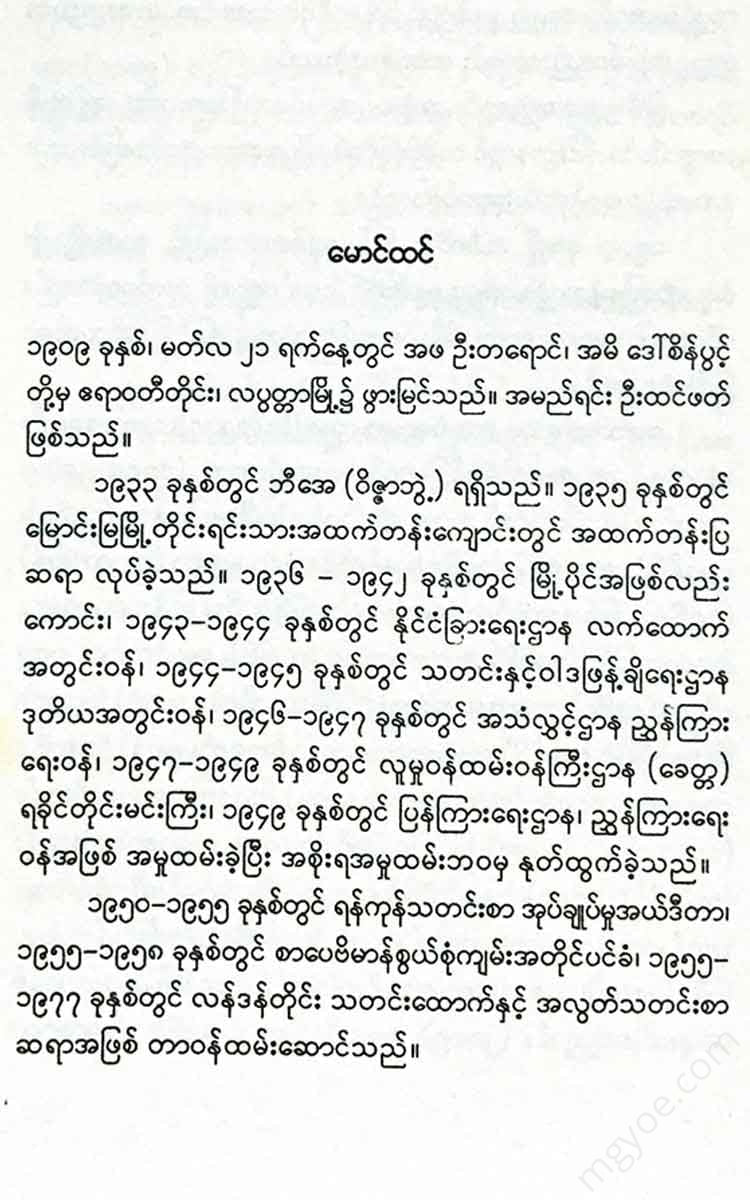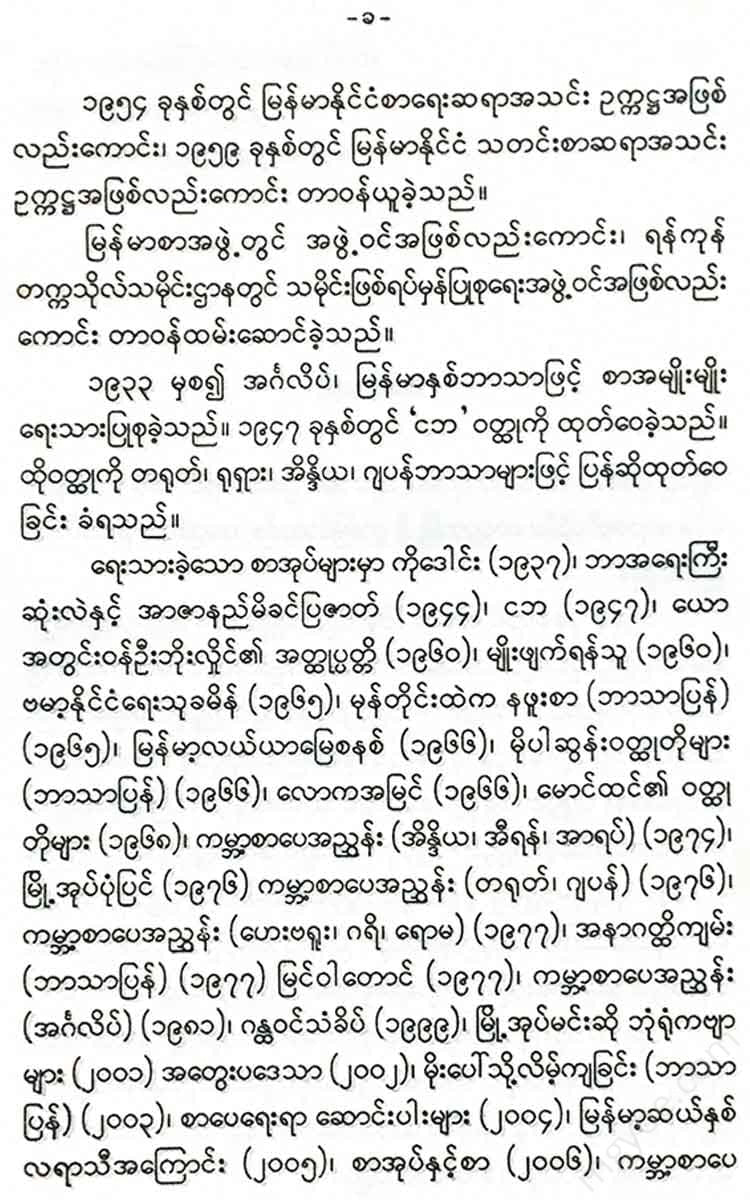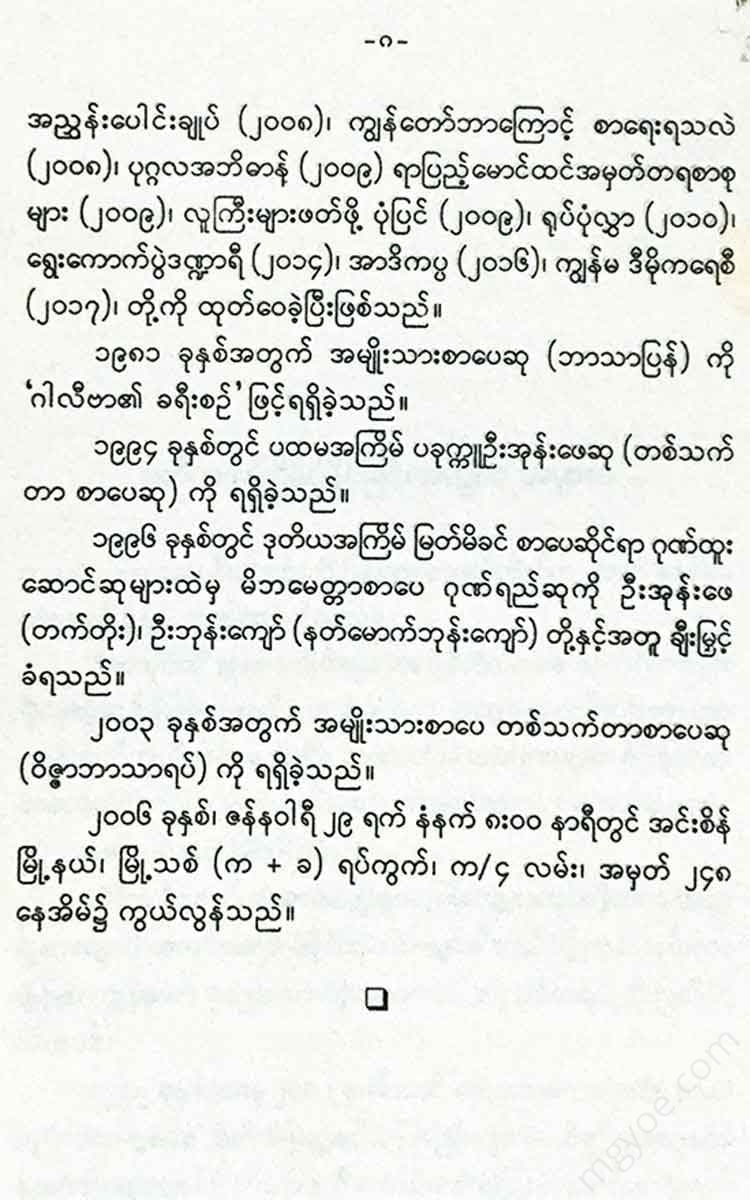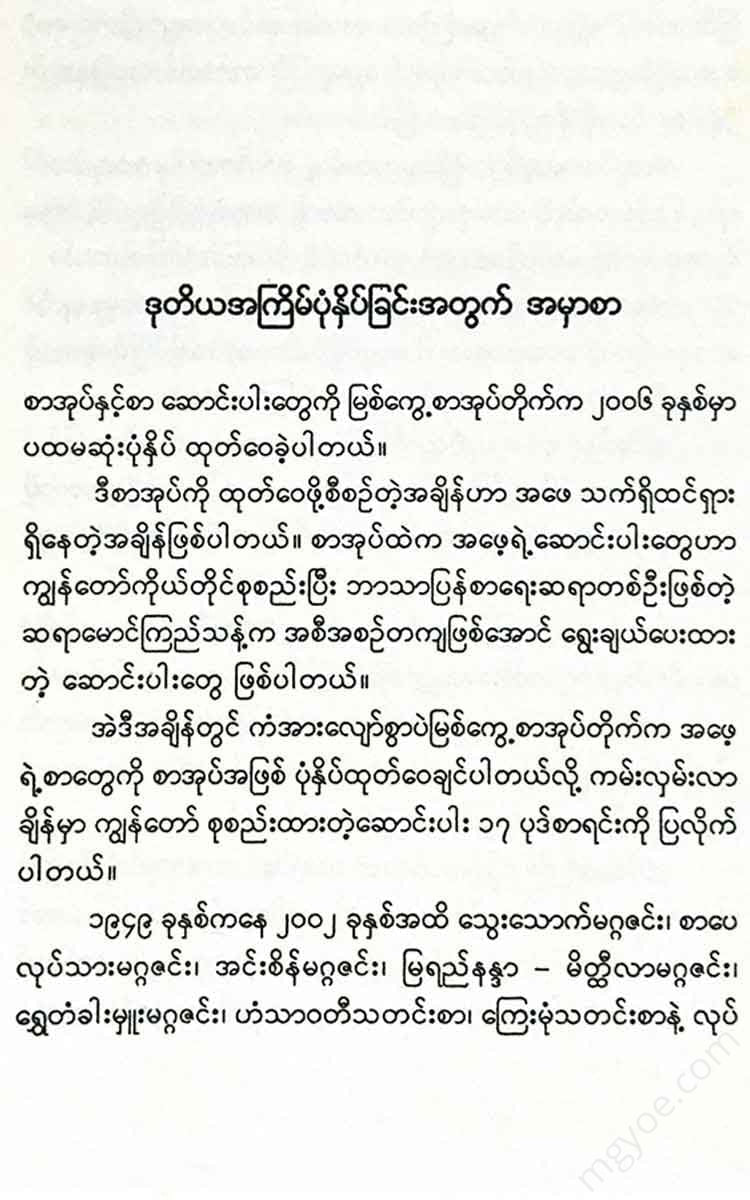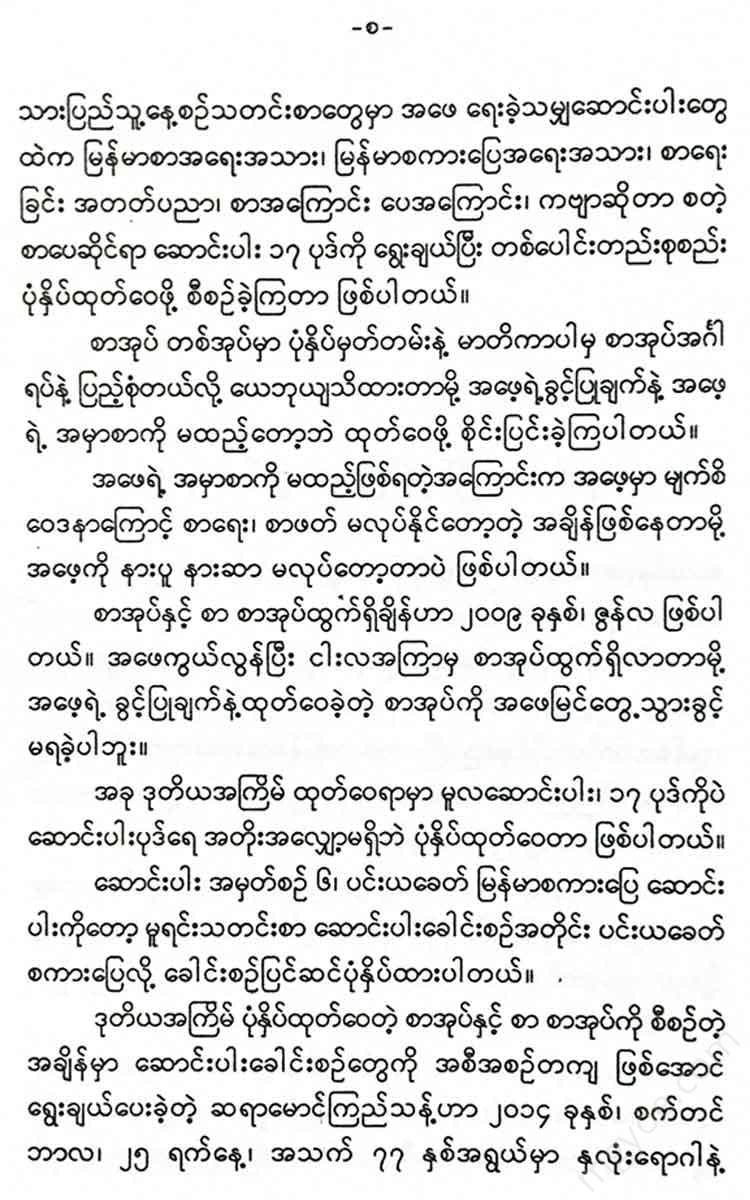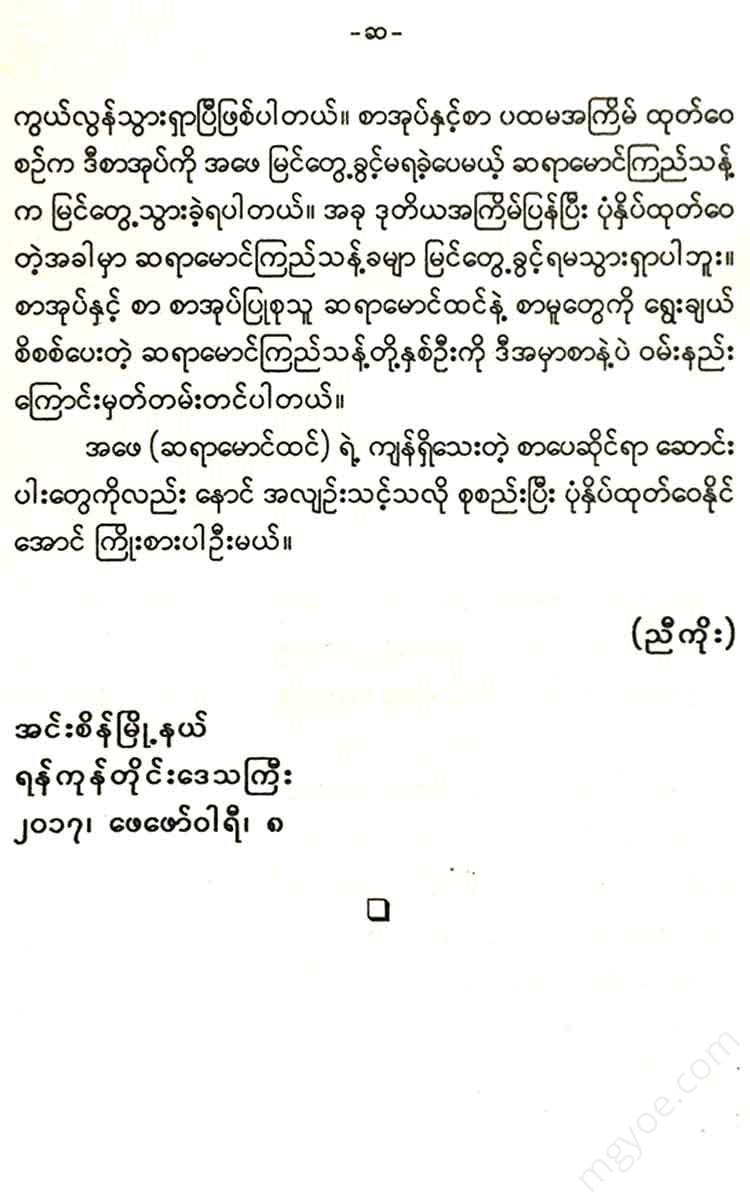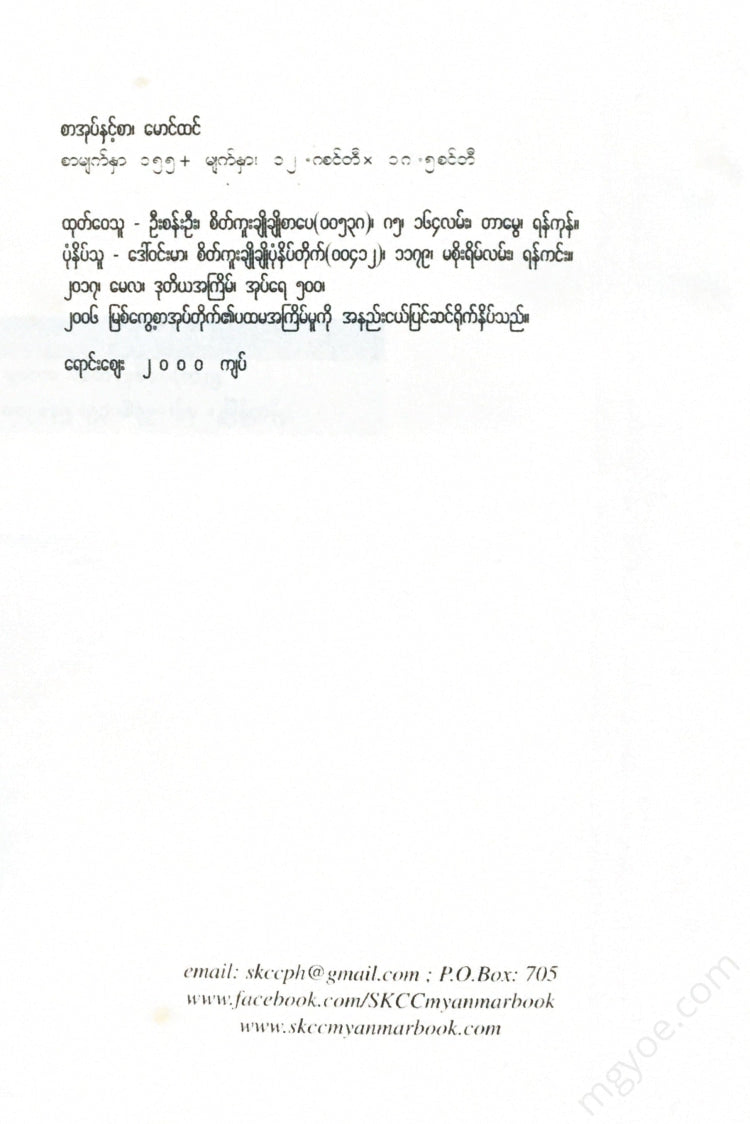စိတ်ကူးချိုချိုစာပေ
Maung Htin - Books and Letters
Maung Htin - Books and Letters
Couldn't load pickup availability
Letter
"I'll write a little piece for the sake of drinking blood," I thought back to the past, when I was in the magazine "Ganta Loka" and tried to cultivate a new era of literature.
The word revolution is in vogue these days. However, even though the work of the literary critics of that time was purely a literary revolution, they did not know whether to use the word revolution. Even if the word revolution entered their minds unknowingly, it was not well received by the public, so even that word was expelled from their minds. However, in all the literary criticism articles I wrote in English in the magazine Gantthaloka, I used the word (Literary Revolution) in my writings.
Therefore, revolutionary literature was confined to the name of contemporary literature.
Maung Maung Wa, a scholar, writes in short, easy-to-understand words and phrases that depict the life around him. Zawgyi, on the other hand, composes poems that express deep thoughts and embellish them with easy-to-understand words. Min Thuwan, on the other hand, composes poems that express subtle fantasies and nostalgic and joyful events of life in easy-to-understand words.
Nowadays, the style of modern literature has become commonplace. But at that time, we worked hard to achieve the modern literature era. The public did not think that the era was acceptable. They used to criticize a group of modernists with insults, insults, and insults. Regarding the modernists, U Ba Than (who was working in the Criminal Investigation Department at that time) said that reading the modernists' prose was like the sound of a broken motorcycle's exhaust pipe. Many people commented that the poems of modernists such as Zawgyi and Min Thu Wan were just childish poems for children the age of Ko Kwo.
Some of the critics at the university were like “the tail of a lizard was cut off” when they heard about these criticisms. Therefore, a group of critics wrote articles in English and Burmese, in university magazines, in the Didok Journal, and in the Thuriya Newspaper, arguing with each other. There were not many mainstream newspapers and magazines that would present to the public all the criticisms that the critics had to make.
Meanwhile, U Tun Pe (then Minister of Information) rose from his seat and founded the ‘Myanmar Daily’. The merits of the modernists were many for the Myanmar Daily (in other words, U Tun Pe). One reason was that the articles written by the modernists under various pen names such as Maung Ka Gyi, Maung Kha Kwol, and Htin Thoo were included in the Myanmar Daily. As far as I remember, Maung Ka Gyi and Rathe U Sintar were writing about modernist literature. In the midst of the ongoing literary war, the Myanmar Daily (in other words, U Tun Pe) was a well-known figure.
It is true that we, as a society, feel a deep sense of sadness over the disappearance of the Myanmar daily life. However, mere mourning will not keep the cause of the Myanmar literary revolution alive. We rely on the "Gantha World" to present our message clearly. In this matter of gathering, we cannot leave out the editor of the Gantha World, Ko Khant. His predecessor, Thakin Ba Thaung, cleared the way for the literary revolution and created the modern literary world. However, if there is no one who can properly follow in his footsteps, our efforts will be delayed. Thanks to Ko Khant's efforts, writers such as Saung Maung Wa, Zaw Gyi, Min Thu Wan, Thein Nay Nwe, Maung Htin, Kus, Mya Ke Tu, Tat Toe, Maung Phyu, Nwe Soe, Khin Lay Maung, and Professor U Aye Maung, whose pen names I do not remember now, have come out of the Gantha World and planted the new Burmese classics.
However, in the matter of these writers being able to gather together in such a competitive manner, we should not forget the gratitude of one of our great leaders, the late Deedok U Ba Cho.
The writers of that era were very interested in modern literature. However, some writers who were watching the changes of the times did not attack modern literature with a long stick. Writers like Pee Moe Ning especially encouraged it. However, it is quite shocking that an ancient Burmese artist like Deedok U Ba Cho criticized modern literature mercilessly.
One day, in a lecture on Burmese literature in a certain school (I don't remember whether it was in Bago or Innwa), Deedok U Ba Cho gave an extensive lecture on "Contemporary poetry is accepted as a new literature that has emerged due to the progress of the times, but the Burmese cultural principles must be preserved and not lost, and how to transform Burmese poetry and how not to destroy the principle of using four-syllable rhymes in a verse."
From then on, some of the modernists gathered in the Didok Journal.
If we look back at the origins of this gathering, we cannot help but be grateful to Thakin Nu and Tatbonegyi Thein Pe, who were both active in politics while enjoying literature. In fact, it can be said that Thakin Nu did not participate in the movement of contemporary literature. He was not a writer who entered the literary world at the same time as Min Thu Wan, Zaw Gyi, and Sihan Maung Wa. He was a playwright who, from 1925, was obsessed with Bernard Shaw. He wrote short plays and sent them to newspapers and journals.
However, from 1925 to 1930, Thakin Nu was not associated with the modernists. When the modernists were experimenting with modernism in the late 1930s, readers had read Thakin Nu's plays. However, readers did not include him in the list of modernists. Therefore, as I said above, Thakin Nu did not participate in the modernist literary movement.
In fact, even though Thakin Nu himself was a traveler, his writings reflect his life as a contemporary. Therefore, for an audience that can accept Thakin Nu's writings, there is no reason why the importance of contemporary issues cannot be accepted.
Now, who will Thein Nay Nwe be? By writing “My Husband and My Money” in the epic world, Thein Nay Nwe showed signs that he would become “Thein Pe, the great monk” for future generations.
Before I read My Husband and My Money, I had come across the pen name Thein Nay Nwe. Nothing special. I had also come across Thein Pe a few times. Nothing special. Ko Khant told me that “Thein Pe and Thein Nay Nwe” meant the same thing as “Tek Pho Gyi and Thein Pe Myint.” That was strange. A modernist had stepped forward and I was impressed.
After many years, the modernists gathered in the magazine "Sasotaw" edited by Thein Pe and published by Ko Khant, and they became famous in the literary world. However, the journey of modernism was not smooth like a fur carpet covered with roses. The "Sasotaw" that came to life with a bang, a bang, a bang, passed away after only four, five, six months.
Now, the revolutionary literature that was planted in the era of the junta is steadily advancing along the lines of the revolutionary camp. In a movement, there is always a counter-movement. In a revolution, there must also be a counter-revolution. We have not yet reached the point of sitting back and saying that the revolution has run out of steam. In short, the revolution has not settled down yet.
Therefore, we see a new kind of writing that is more mysterious than the modern era. In fact, the modern era is not a revolution. Every new era is not a revolution. In the modern literature (or) revolutionary literature of Myanmar, the adjectives “new” and “revolutionary” are used, and the English language and English thoughts are directly translated, and it will not be able to become a modern (or) revolutionary literature. Without such a literature, it will not be able to move up to the level of popular literature.
However, in this era of unsettled revolution, aren't revolutionaries doing whatever they want under the pretext of revolution? For example, they extort money under the pretext of revolution. They burn down villages under the pretext of revolution. They even kill their own flesh and blood under the pretext of revolution. Therefore, writers should also write whatever they want under the pretext of revolution.











